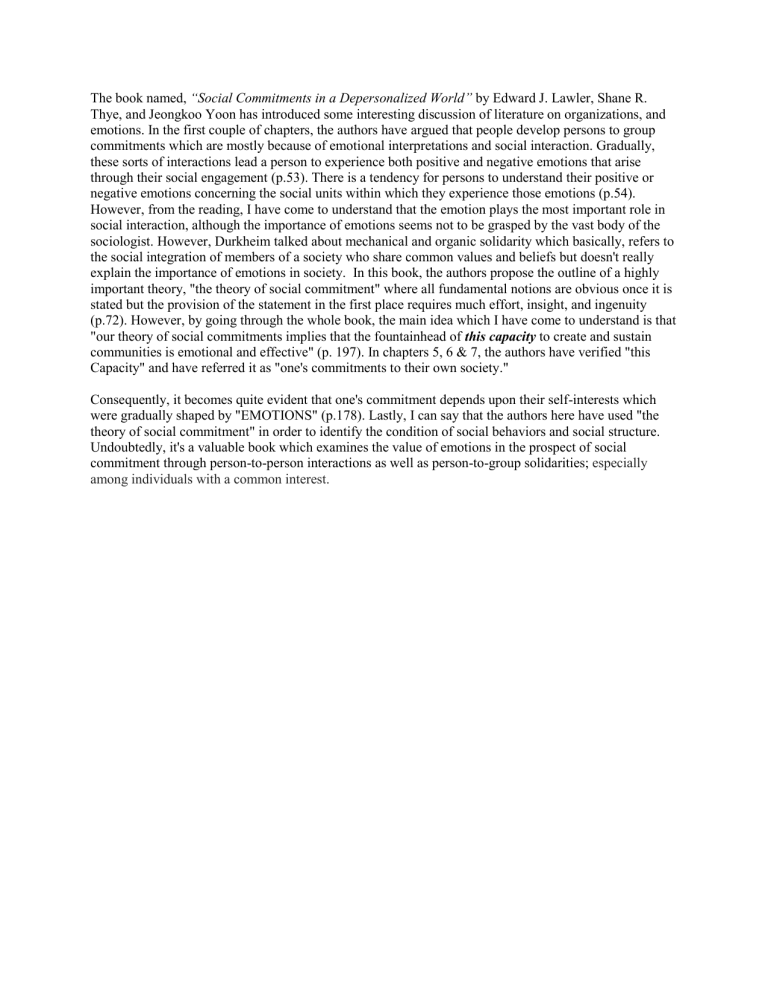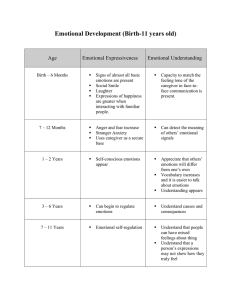
The book named, “Social Commitments in a Depersonalized World” by Edward J. Lawler, Shane R. Thye, and Jeongkoo Yoon has introduced some interesting discussion of literature on organizations, and emotions. In the first couple of chapters, the authors have argued that people develop persons to group commitments which are mostly because of emotional interpretations and social interaction. Gradually, these sorts of interactions lead a person to experience both positive and negative emotions that arise through their social engagement (p.53). There is a tendency for persons to understand their positive or negative emotions concerning the social units within which they experience those emotions (p.54). However, from the reading, I have come to understand that the emotion plays the most important role in social interaction, although the importance of emotions seems not to be grasped by the vast body of the sociologist. However, Durkheim talked about mechanical and organic solidarity which basically, refers to the social integration of members of a society who share common values and beliefs but doesn't really explain the importance of emotions in society. In this book, the authors propose the outline of a highly important theory, "the theory of social commitment" where all fundamental notions are obvious once it is stated but the provision of the statement in the first place requires much effort, insight, and ingenuity (p.72). However, by going through the whole book, the main idea which I have come to understand is that "our theory of social commitments implies that the fountainhead of this capacity to create and sustain communities is emotional and effective" (p. 197). In chapters 5, 6 & 7, the authors have verified "this Capacity" and have referred it as "one's commitments to their own society." Consequently, it becomes quite evident that one's commitment depends upon their self-interests which were gradually shaped by "EMOTIONS" (p.178). Lastly, I can say that the authors here have used "the theory of social commitment" in order to identify the condition of social behaviors and social structure. Undoubtedly, it's a valuable book which examines the value of emotions in the prospect of social commitment through person-to-person interactions as well as person-to-group solidarities; especially among individuals with a common interest.





